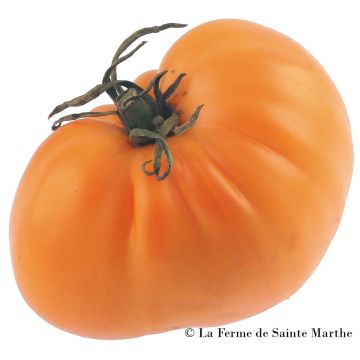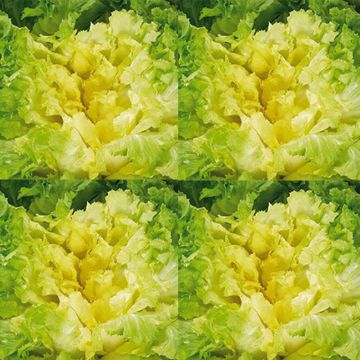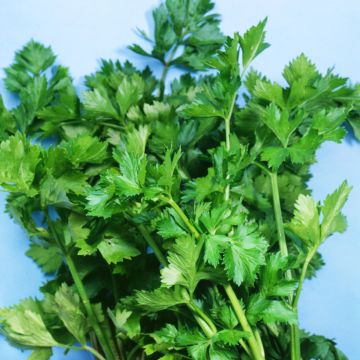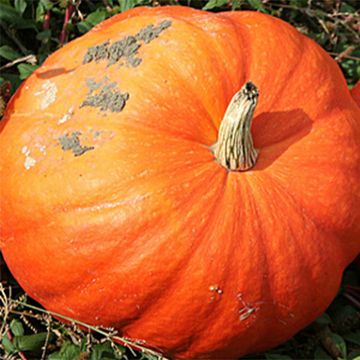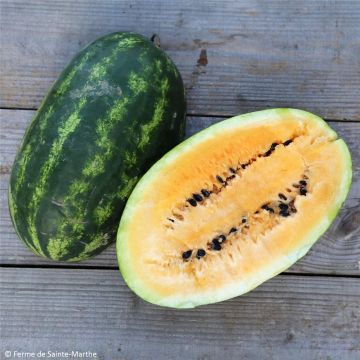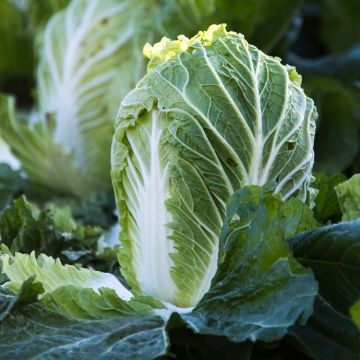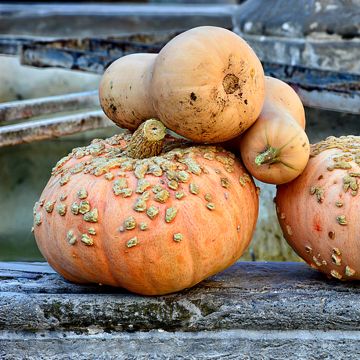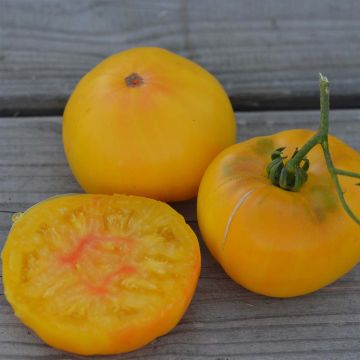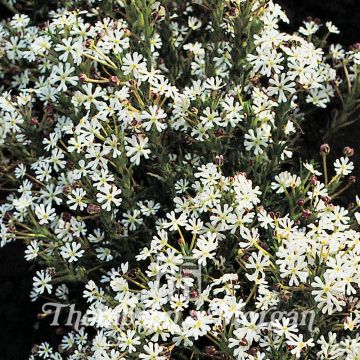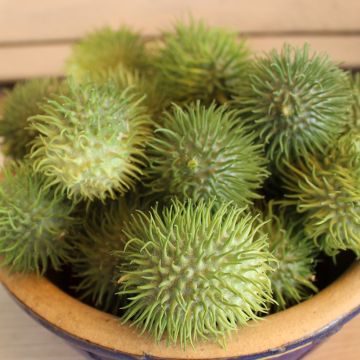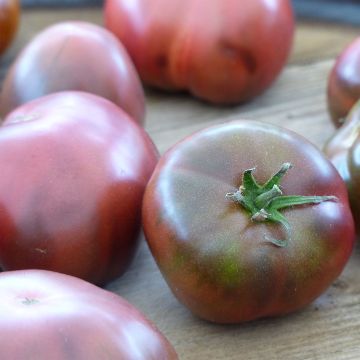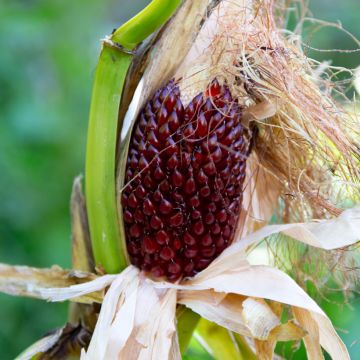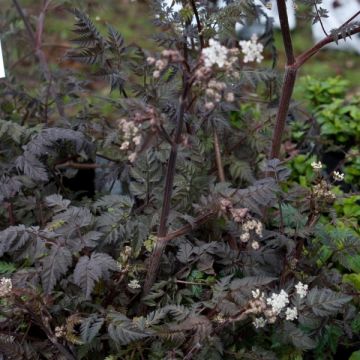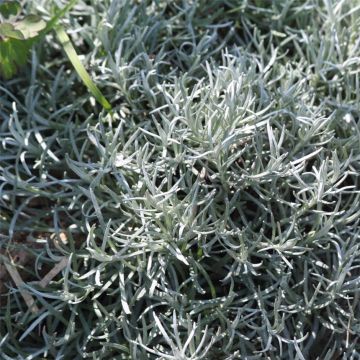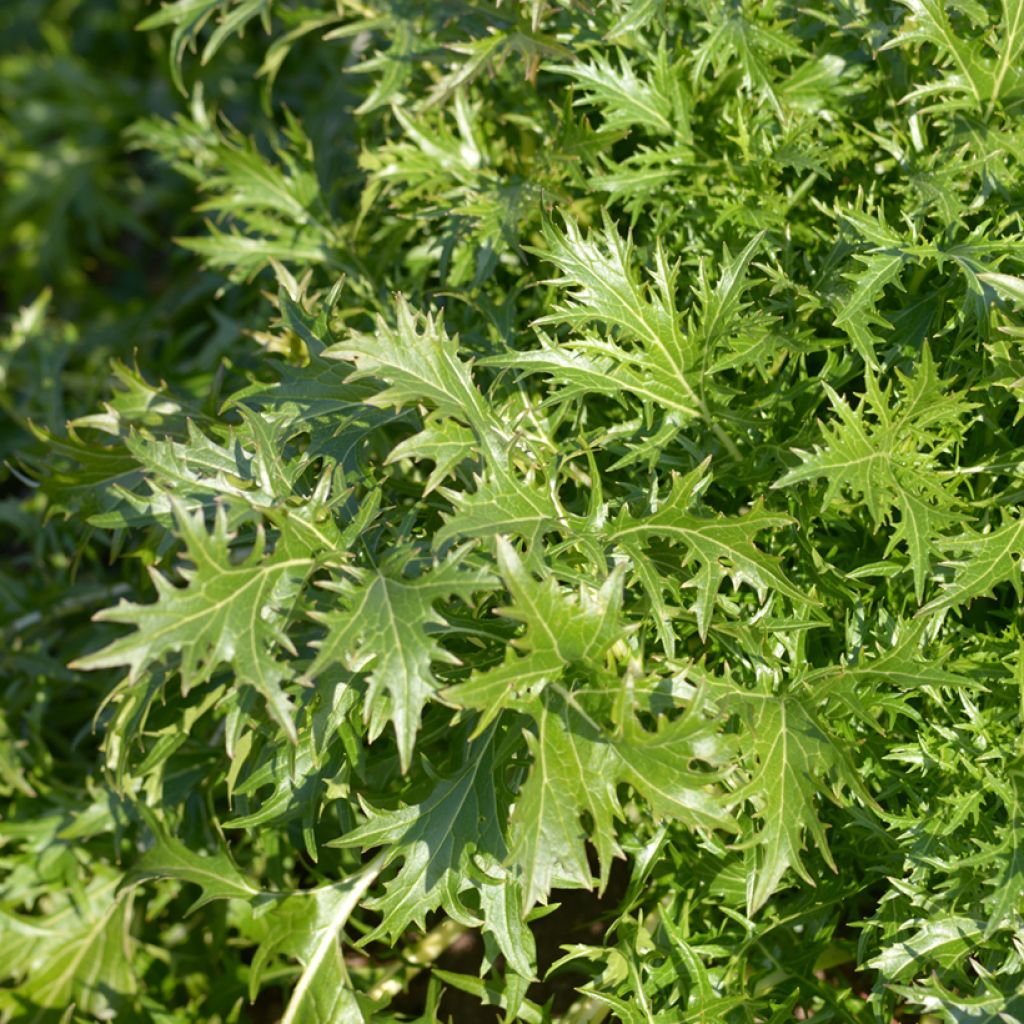

Mizuna Cabbage - Ferme de Sainte Marthe Seeds


Mizuna Cabbage - Ferme de Sainte Marthe Seeds
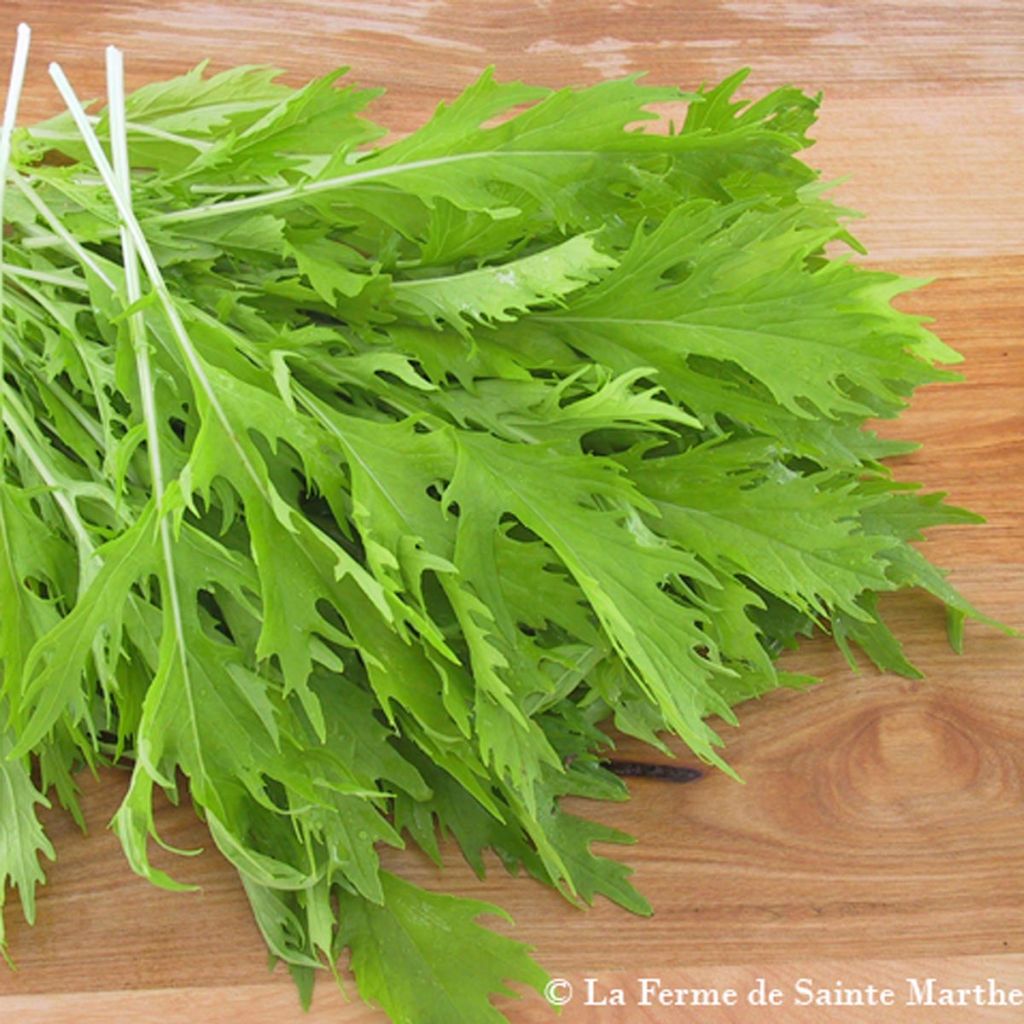

Mizuna Cabbage - Ferme de Sainte Marthe Seeds
Mizuna Cabbage - Ferme de Sainte Marthe Seeds
Brassica rapa japonica
Japanese mustard
Good germination but sensitive to flea beetles. Goes to seed quickly, so you need to harvest leaf by leaf fairly quickly. Average taste, not very interesting in salads.
Pierre B., 14/08/2017
This item cannot be shipped to the selected country
Dispatch by letter from €3.90
More information
Dispatch by letter from €3.90
More information
Schedule delivery date,
and select date in basket
This plant carries a 6 months recovery warranty
More information
We guarantee the quality of our plants for a full growing cycle, and will replace at our expense any plant that fails to recover under normal climatic and planting conditions.
Seed-only orders are dispatched by sealed envelope. The delivery charge for seed-only orders is €3.90.
Description
Mizuna cabbage or Japanese mustard (Brassica rapa japonica) is a tasty leaf vegetable belonging to the large Brassicaceae family. It is closely related to turnips and Chinese cabbage. It forms loose heads of narrow, serrated green leaves. Mizuna has a mild peppery flavour and is often eaten raw as baby salad greens or lightly cooked in a stir-fry. This biennial plant, grown as an annual, is remarkably healthy thanks to its high vitamin A, K and C content. It is also a good source of fibre and minerals such as calcium and potassium.
Mizuna is very easy to grow, being both vigorous and cold-resistant. Ideal for winter crops! It requires deep, rich soil, regular watering and plenty of sun.
Harvest: Harvest the leaves as and when required by cutting them off at ground level.
Storage: Mizuna will keep for several days in the refrigerator.
Good to know: Mulching with grass clippings or dead leaves will help keep the soil moist whilst limiting weed growth.
Even if the vegetable garden is first and foremost a place for growing great quality veg, it’s always a good idea to leave a bit of room for flowers. Growing flowers alongside your vegetable plants will make your general gardening experience more enjoyable and is a great way to attract pollinators and repel garden pests! Flowers such as gaillardia, marigolds, zinnias, cosmos or nasturtiums can be sown in and around the rows of vegetables. Herbs such as dill can be very useful also. Bear in mind that some companion plants self-seed easily and can be a bit invasive (borage, chives, lemon balm etc.)
NB. Organic seeds (in French "AB" for "Agriculture Biologique") are produced from plants that aren't treated with phytosanitary products (insecticides, weed killers). The seeds do not undergo post-harvest treatment. They carry the AB label and are approved by Ecocert, an independent structure.
Harvest
Plant habit
Foliage
Botanical data
Brassica
rapa
japonica
Brassicaceae
Japanese mustard
Cultivar or hybrid
Annual
Other Vegetable seeds from A to Z
View all →Planting and care
Sowing:
The Mizuna Cabbage has a germination temperature of around 14°C and takes about 14 days.
Sowing period: indoors from February to May or outdoors from April to August
Harvest period: from July to September
You can either sow the seeds directly in the ground or prepare seedlings that will later be planted in their final position in the garden.
Preparing seedlings: Indoors or in a nursery in the garden for the rest of the year (according to the recommended sowing period), sow the seeds at a depth of 1 to 2 cm in a good seed compost or fine soil. Cover lightly with compost and remember to keep the substrate moist but not waterlogged.
When the young plants appear strong enough to handle, transplant them into pots if necessary before planting them in the garden, when there is no longer any risk of frost. During planting, respect the recommended spacing for direct sowing.
Direct sowing: In properly amended and finely worked soil, make furrows about one or two centimeters deep, spaced 20 centimeters apart. Sow the seeds and cover them with a thin layer of fine soil. When the seedlings are well developed, thin them out, leaving one plant every 20 centimeters.
Cultivation:
The Mizuna Cabbage is grown in full sun. It is a demanding vegetable that requires well-rotted, nitrogen-rich and potassium-rich soil. It is advisable to apply a generous amount of mature compost (about 3/4 kg per m2), by scratching it to a depth of 5 cm, preferably in autumn, after thoroughly loosening the soil as for any vegetable crop. It is not very tolerant of soil pH, which should be between 5.6 and 6.5. In acidic soil, it will be necessary to gradually raise this pH by adding calcium in the form of Dolomite or Lime.
Beware of pests such as Cabbage White Butterfly or Flea Beetles and consider installing insect netting.
Seedlings
Care
Intended location
Vegetable seeds
Haven't found what you were looking for?
Hardiness is the lowest winter temperature a plant can endure without suffering serious damage or even dying. However, hardiness is affected by location (a sheltered area, such as a patio), protection (winter cover) and soil type (hardiness is improved by well-drained soil).

Photo Sharing Terms & Conditions
In order to encourage gardeners to interact and share their experiences, Promesse de fleurs offers various media enabling content to be uploaded onto its Site - in particular via the ‘Photo sharing’ module.
The User agrees to refrain from:
- Posting any content that is illegal, prejudicial, insulting, racist, inciteful to hatred, revisionist, contrary to public decency, that infringes on privacy or on the privacy rights of third parties, in particular the publicity rights of persons and goods, intellectual property rights, or the right to privacy.
- Submitting content on behalf of a third party;
- Impersonate the identity of a third party and/or publish any personal information about a third party;
In general, the User undertakes to refrain from any unethical behaviour.
All Content (in particular text, comments, files, images, photos, videos, creative works, etc.), which may be subject to property or intellectual property rights, image or other private rights, shall remain the property of the User, subject to the limited rights granted by the terms of the licence granted by Promesse de fleurs as stated below. Users are at liberty to publish or not to publish such Content on the Site, notably via the ‘Photo Sharing’ facility, and accept that this Content shall be made public and freely accessible, notably on the Internet.
Users further acknowledge, undertake to have ,and guarantee that they hold all necessary rights and permissions to publish such material on the Site, in particular with regard to the legislation in force pertaining to any privacy, property, intellectual property, image, or contractual rights, or rights of any other nature. By publishing such Content on the Site, Users acknowledge accepting full liability as publishers of the Content within the meaning of the law, and grant Promesse de fleurs, free of charge, an inclusive, worldwide licence for the said Content for the entire duration of its publication, including all reproduction, representation, up/downloading, displaying, performing, transmission, and storage rights.
Users also grant permission for their name to be linked to the Content and accept that this link may not always be made available.
By engaging in posting material, Users consent to their Content becoming automatically accessible on the Internet, in particular on other sites and/or blogs and/or web pages of the Promesse de fleurs site, including in particular social pages and the Promesse de fleurs catalogue.
Users may secure the removal of entrusted content free of charge by issuing a simple request via our contact form.

































